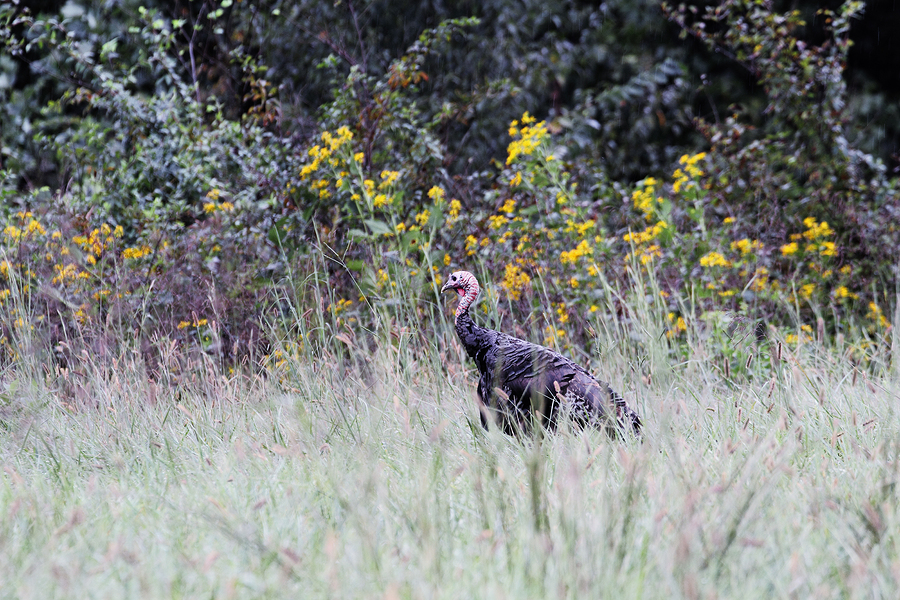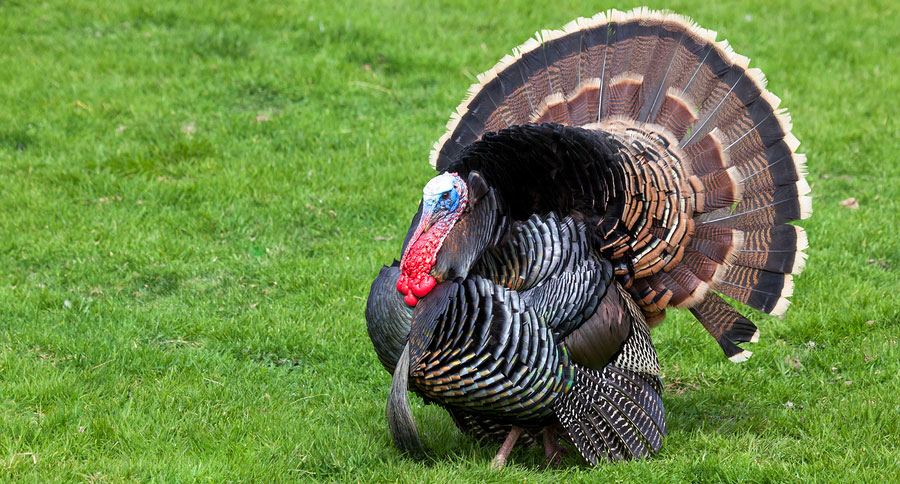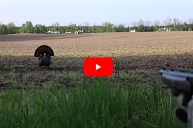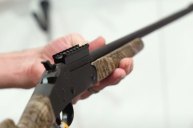New to the turkey hunting game?
It's OK to make these mistakes as a newbie, but we're here to teach you how to avoid them on your next gobbler outing, because turkey hunting is difficult enough.
We've compiled a list of the top seven mistakes people often make when they hit the turkey woods for the first time.
Are there any hunting tips you would add?
1. Not patterning your gun (and don't know its range)
Just because you've recently spent several months using your 12-gauge during duck season with skill and success doesn't mean you'll do the same when it comes time to shoot a wild turkey. If you've changed your choke and swapped shells, your gun is going to throw the pattern differently, and your range will vary.
When your target is the size of an apple and is 35-40 yards away, inches become much more important. You don't want to go home empty-handed because you whiffed a turkey, oblivious to the fact that your gun now shoots slightly higher than before, or your pattern wasn't as tight as you thought.
2. Not scouting

Heading out for your first turkey hunt definitely requires doing some pre-hunt homework, and scouting is key in setting yourself up for success. I've had turkeys come out into the field like clockwork for several months while I was deer hunting a particular field, only to have them completely disappear from that area by March.
Their habits change when spring rolls around, and you need to be prepared. Start scouting a week or two out from opening day, looking both for feeding and roosting grounds. Don't set up too close to the roost, but make sure you're not so far away that you can't hear them gobble.
3. Poor hunt setup
Another common mistake made by novice turkey hunters occurs in the actual setup of their hunt. Instinct may be to hide yourself as much as possible, but don't hide yourself so well in the foliage that you restrict your own view and can't see a bird (or anything else, for that matter) 15 yards away.
Setting up against a big tree a few yards from the edge of a field or clearing helps to give you a wide field of view, and helps to break up your outline without burying yourself so deep in the brush that you can't see what's going on around you.
Decoy placement is also important. Don't put your decoys directly between you and where you think the bird might come from. If you're directly in his line of sight when he's looking at the decoys, your chances of spooking him are much higher. It's best to put them to one side or the other, and preferably to the side opposite of your shooting shoulder to make mounting your gun easier.
4. Too much movement
This coincides with the setup of your hunt. When your eyes and ears are on hyper-alert, it's human nature to turn and look when you do hear something or catch movement in the corner of your eye. Don't! Turkeys have fantastic eyesight, and a quick head turn is sure to spook them. If you're constantly having to turn your head to see around you, you're more likely to give yourself away.
The same goes for raising your gun to take a shot. Don't sit in a position that requires a lot of movement to get your gun to your shoulder - you may only have a second or two to do it, and the jarring movement of both arms and gun will send a turkey running in the opposite direction. A good rule of thumb is if you can see them, they can see you. All it takes is one wrong move to blow the rest of your hunt.
5. Calling too much (or too little)
Ahh, the turkey call. I feel like there are two types of beginner turkey hunters. There's those who call constantly, whether they hear anything or not (even if they're terrible at it), and then there's those who just don't call because they think they can't. There is a fine line between over- and under-calling, and it varies by situation. If he's still in the roost, gobbling away and hot, it's okay to call back to him.
If you've got a gobbler in sight, it's typically better to go quiet and let him come on in. You don't have to be exceptionally good at calling, either. I've heard hens that sound more like a squawking shore bird than a turkey, but still pulled in a gobbler.
6. Impatience
Even after years of turkey hunting, first thing I do when I'm not hearing anything, and haven't seen anything, is question my location. Did I make a mistake in setting up here? Should I move to that other field I scouted a few days ago? As hard as it is, try to fight that urge.
When you try to move to another location, you run the risk of spooking a bird that was just out of sight but heading towards you, or making too much noise on the way and scaring the turkeys off before you even get there. It's human nature to want to move when you haven't had any luck, but it's usually best to stay put.
7. Going home too early

A novice turkey hunter might want to simply pack up and head home when the morning has been slow, thinking that the prime hunting time has completely come and gone. Gobblers aren't done for the day, trust me!
While first light is usually better, there's nothing stopping you from having some late morning success. Just because you didn't see anything in the early morning doesn't mean you won't have a mid-morning tom strut in, on the search for his second round of female company for the day. Just last weekend I received a text from a fellow hunter around 11 a.m. with photos of the gobbler he'd killed just minutes before.
Don't worry, even the best turkey hunters make mistakes. Hopefully I've at least helped you get started on the right foot.
Happy hunting!
NEXT: VIDEO: WATCHING THIS FISHING BOAT GETTING SHREDDED WILL MAKE YOU CRINGE
WATCH




